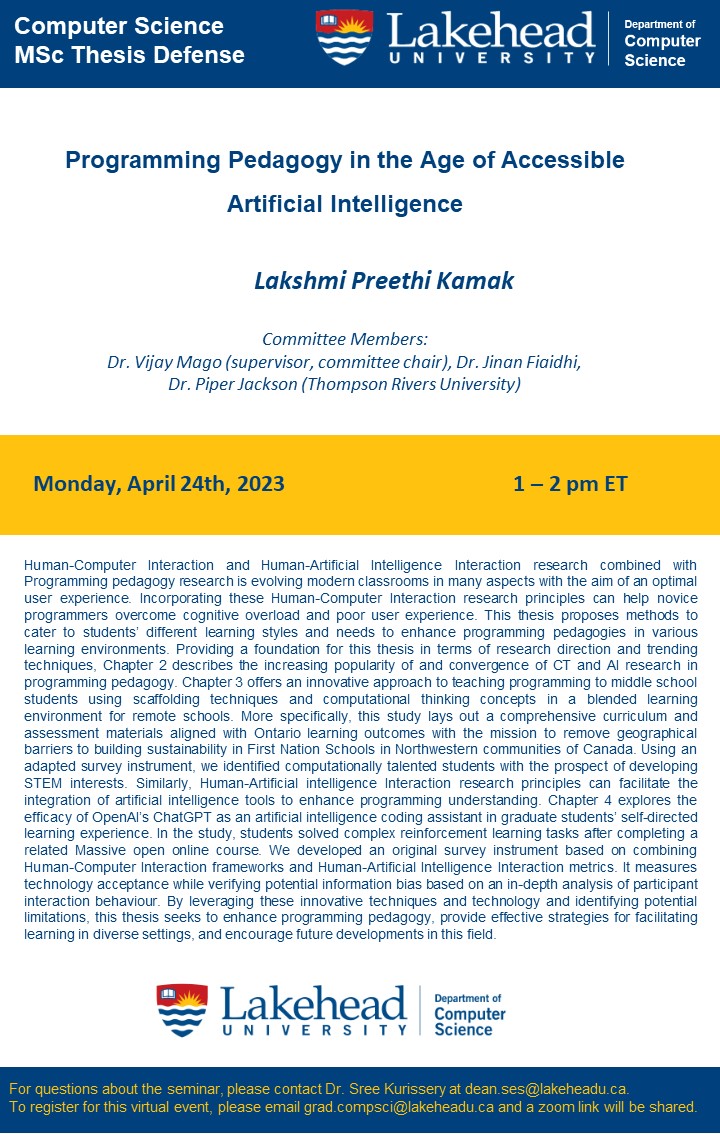Computer Science Department Thesis Defense - Lakshmi Preethi Kamak

Please join the Computer Science Department for the upcoming thesis defense:
Presenter: Lakshmi Preethi Kamak
Thesis title: Programming Pedagogy in the Age of Accessible Artificial Intelligence
Abstract: Human-Computer Interaction and Human-Artificial Intelligence Interaction research combined with Programming pedagogy research is evolving modern classrooms in many aspects with the aim of an optimal user experience. Incorporating these Human-Computer Interaction research principles can help novice programmers overcome cognitive overload and poor user experience. This thesis proposes methods to cater to students’ different learning styles and needs to enhance programming pedagogies in various learning environments. Providing a foundation for this thesis in terms of research direction and trending techniques, Chapter 2 describes the increasing popularity of and convergence of CT and AI research in programming pedagogy. Chapter 3 offers an innovative approach to teaching programming to middle school students using scaffolding techniques and computational thinking concepts in a blended learning environment for remote schools. More specifically, this study lays out a comprehensive curriculum and assessment materials aligned with Ontario learning outcomes with the mission to remove geographical barriers to building sustainability in First Nation Schools in Northwestern communities of Canada. Using an adapted survey instrument, we identified computationally talented students with the prospect of developing STEM interests. Similarly, Human-Artificial intelligence Interaction research principles can facilitate the integration of artificial intelligence tools to enhance programming understanding. Chapter 4 explores the efficacy of OpenAI’s ChatGPT as an artificial intelligence coding assistant in graduate students’ self-directed learning experience. In the study, students solved complex reinforcement learning tasks after completing a related Massive open online course. We developed an original survey instrument based on combining Human-Computer Interaction frameworks and Human-Artificial Intelligence Interaction metrics. It measures technology acceptance while verifying potential information bias based on an in-depth analysis of participant interaction behaviour. By leveraging these innovative techniques and technology and identifying potential limitations, this thesis seeks to enhance programming pedagogy, provide effective strategies for facilitating learning in diverse settings, and encourage future developments in this field.
Committee Members:
Dr. Vijay Mago (supervisor, committee chair), Dr. Jinan Fiaidhi, Dr. Piper Jackson (Thompson Rivers University)
Please contact grad.compsci@lakeheadu.ca for the Zoom link.
Everyone is welcome.

